If you are like me, I'm betting that in at least one area of your life there is a gap. A gap between where you are and where you would like to be.
What we don’t realize or we lose sight of is that the many choices we make each day, often seemingly insignificant choices, add up. Collectively, they can move us closer to our goals or they can move us further away.
Jeff Olson's book The Slight Edge reminds us that whether we like it or not, we are either on the success curve, closing that gap inch by inch, little by little. Or we are neutral and stuck, not making progress. Or sometimes we are on the failure curve, sliding inch by inch further away from where we would like to be.
Your Brain Wasn’t Designed to See Compounding Effects
The challenge is that our brains evolved such that we have a hard time seeing exponential change. Or in this case, the consequences of small, seemingly inconsequential choices. Our brains are very good at noticing immediate threats and rewards, but far less able to see incremental movement when nothing much changes in the moment.
This is something we need to wire into our thinking. And in the beginning it is almost a leap of faith (and science). That given time, the compounding effect of small choices will either move us toward our goal, maintain the status quo or move us further away from our goal.
This is why most people give up far too early with new habits (such as meditation, exercise, diet, sleep, relationships, saving money, saying no to distraction, planning the day, not reacting in the moment, etc.). We mistake the initial lack of significant progress as “nothing is happening” or “not being worth the effort.”
Or we go the other way and we delude ourselves that we can make unproductive, unhealthy, unwise choices and that they don’t matter. But over the longer term, in both cases, we are wrong.
Being OK with Being Uncomfortable
The key in all of this is learning to be uncomfortable early (as in saying no to an easy distraction now) such that we are comfortable later (we feel good knowing that we focused on what was most important today). Patience helps too.
Sounds easy, but our survival brain is heavily tilted towards getting what it wants now (seeking pleasure, avoiding discomfort) and has a tougher time with engaging with discomfort now (doing the hard task now) for delayed gratification (greater productivity or peace of mind later).
Three Things You Can Do to Close the Gap
1. Remind yourself of this principle (compounding effect) – often! I find it comical that I can understand this principle, teach it to others and yet still slip into a state of delusion where I think it doesn’t apply to me. That if I surrender to the lure of my phone simply because I prefer an easy distraction to the hard task at hand - it doesn’t affect my trajectory. Or moving the other way, that my consistent daily efforts toward business development don’t matter (since relationship-based business development seldom yields business in the moment). This is the human condition. Seeking pleasure, avoiding discomfort, pretending that neither matter in the long run. Buy a copy of The Slight Edge and read a few pages of it weekly until this concept is fully engrained in your ethos.
2. Create healthy habits. Once you get this concept, you will want to create and wire in a habit that has you unconsciously making more of the little decisions/actions that move you toward your goals. Where this just becomes closer to “who you are” and “how you roll”. Start small and stick with it until it is solid. If you were to start anywhere, I recommend starting with sleep. Create the habit of a digital sunset and move toward incrementally getting more sleep.
This is far easier said than done. Most of us will need an accountability buddy or a coach to help us get past the initial stages of not believing that the good choices are worth the effort. Our survival brain is that good at staying comfortable!
3. Celebrate micro-wins! There is a ton of science and good tools out there on habit change. Tiny Habits by BJ Fogg. Atomic Habits by James Clear. One thing they increasingly share is approaching habit change from the perspective of micro-wins. Why? Because, if we truly understand the principle of compounding effects, then we know that there are no inconsequential choices. So, we consciously see them for what they are worth – a beautiful step in the right direction. And then we celebrate each of these steps, these micro-wins, giving ourselves a little hit of dopamine for making that step. It’s not about perfection, it is about movement in the right direction.
Like I said, this is far easier said than done. I’m here as a mindfulness trainer and coach to help you and your team wire in more healthy and productive habits. Don’t give up on the goal, on closing the gap. Instead, double-down on the principle knowing that the little things do matter, that compounding effects, exponential change and success are inevitable!
Sign up HERE to be part of the Nature of Work CPA cohort on creating these habits (starting Feb 1st). You will be grateful you did. Or reach out to me at scott@mindfulwisdom.ca to find out what a customized training program could look like for your organization.

